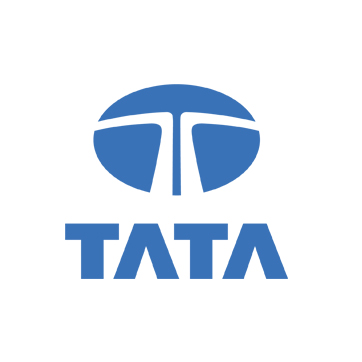Overview
ROC (Registrar of Companies) annual compliances and filings are mandatory for all companies registered under the Companies Act, 2013. These compliances ensure that a company remains in good legal standing by submitting financial statements, annual returns, and other statutory documents to the ROC. Failure to meet these annual requirements can result in penalties, legal action, and the disqualification of directors. Legal Corner specializes in managing ROC annual compliances, ensuring that your company adheres to all statutory obligations, files accurate and timely reports, and avoids potential legal pitfalls.
Eligibility
- All Registered Companies:
Every company registered under the Companies Act, 2013, including private limited companies, public limited companies, one-person companies, and Section 8 companies, is required to comply with ROC annual filing requirements. - Compliance with Financial Year:
The company must complete its annual filings based on the financial year, which runs from April 1st to March 31st. All financial statements, annual returns, and other relevant documents must be prepared and submitted according to this timeline. - Board of Directors’ Approval:
The company’s board of directors must approve the financial statements and annual returns before they are submitted to the ROC. A formal resolution should be passed during a board meeting to authorize these filings. - Appointment of Auditors:
The company must have a validly appointed auditor who has audited the financial statements. The auditor’s report, along with the financial statements, must be filed as part of the ROC annual compliances. - Adherence to Statutory Deadlines:
Companies must adhere to statutory deadlines for filing forms such as AOC-4 (financial statements), MGT-7 (annual return), and other applicable forms. Timely filing is crucial to avoid penalties and maintain legal compliance.
Benefits
- Legal Compliance:
Fulfilling ROC annual compliances ensures that your company adheres to the Companies Act, 2013, avoiding legal penalties, disqualification of directors, and potential shutdown of operations. - Transparency and Credibility:
Regular and accurate filings enhance your company’s credibility with stakeholders, including shareholders, investors, and regulatory authorities. This transparency is crucial for maintaining trust and fostering long-term business relationships. - Avoidance of Penalties:
Timely and accurate filings help your company avoid hefty fines, late fees, and other penalties associated with non-compliance. This ensures that your financial resources are not wasted on avoidable legal costs. - Operational Continuity:
By maintaining compliance with ROC filings, your company can continue to operate smoothly without the risk of legal interruptions or the revocation of licenses. This continuity is essential for business growth and stability. - Improved Corporate Governance:
Adhering to annual compliances promotes better corporate governance practices, ensuring that the company’s financial health is regularly reviewed and that decisions are made with full transparency and accountability.
Procedure
- Preparation of Financial Statements:
The first step in the ROC annual compliance process is preparing the company’s financial statements, including the balance sheet, profit and loss account, and cash flow statement. These documents must be audited by the company’s appointed auditor. - Approval by Board of Directors:
The financial statements must be reviewed and approved by the board of directors in a duly convened board meeting. A formal resolution must be passed to authorize the submission of these statements to the ROC. - Filing of AOC-4 Form:
The AOC-4 form, which includes the audited financial statements and the auditor’s report, must be filed with the ROC within 30 days of the company’s annual general meeting (AGM). This form is essential for reporting the company’s financial performance. - Filing of MGT-7 Form:
The MGT-7 form, which is the company’s annual return, must be filed within 60 days of the AGM. This form provides details about the company’s shareholders, directors, and other significant aspects of corporate governance. - Filing Other Statutory Forms:
Depending on the company’s specific circumstances, additional forms such as ADT-1 (auditor appointment) or DIR-3 KYC (director’s KYC) may need to be filed. Legal Corner ensures that all necessary forms are accurately completed and submitted on time. - Compliance Verification and Follow-up:
After filing, it’s important to verify the status of submissions on the MCA portal to ensure that all forms have been accepted without errors. Legal Corner monitors the compliance status and addresses any issues that arise, ensuring full compliance.
Why Legal Corner
- Transparent and Reliable Service:
Legal Corner is committed to providing transparent and reliable services. We keep you informed at every step of the process, ensuring that you have full visibility into your company’s compliance status. - Expertise in ROC Filings:
Legal Corner has extensive experience in managing ROC annual compliances and filings. Our team ensures that all necessary documents are prepared accurately, approved by the board, and submitted on time, minimizing the risk of legal issues. - Comprehensive Compliance Management:
We handle all aspects of the ROC filing process, from preparing financial statements to filing all required forms. Our end-to-end service allows you to focus on running your business while we take care of your compliance needs. - Customized Solutions:
Legal Corner provides tailored solutions that meet the specific needs of your business, whether you are a small startup or a large corporation. We adapt our services to fit your company’s size, structure, and industry requirements. - Proactive Deadline Management:
We monitor all compliance deadlines to ensure that your filings are completed on time. Our proactive approach helps you avoid last-minute rushes and potential penalties, keeping your company in good standing with regulatory authorities.
FAQ
What are ROC annual compliances and filings?
ROC (Registrar of Companies) annual compliances and filings are mandatory requirements for all companies registered under the Companies Act, 2013. These include submitting financial statements, annual returns, and other statutory documents to the ROC to ensure legal compliance.
Who is required to file ROC annual compliances?
All companies registered under the Companies Act, 2013, including private limited companies, public limited companies, one-person companies, and Section 8 companies, are required to file ROC annual compliances.
What are the key forms that need to be filed annually with the ROC?
The key forms include AOC-4 (for filing financial statements), MGT-7 (for the annual return), and other forms like ADT-1 (auditor appointment) and DIR-3 KYC (director’s KYC), depending on the company’s specific requirements.
When is the deadline for filing ROC annual compliances?
The AOC-4 form must be filed within 30 days of the company’s annual general meeting (AGM), and the MGT-7 form must be filed within 60 days of the AGM. Other forms may have specific deadlines depending on the event or requirement.
What are the consequences of missing the ROC filing deadlines?
Missing ROC filing deadlines can result in hefty penalties, legal action, and disqualification of directors. Non-compliance can also lead to the company’s name being struck off the register, effectively dissolving the company.
What documents are required for ROC annual filings?
Required documents typically include audited financial statements (balance sheet, profit and loss account, cash flow statement), the auditor’s report, the board’s report, and other statutory documents depending on the specific filing requirements.
Can a company amend its ROC filings after submission?
Yes, certain corrections or amendments can be made to ROC filings after submission, but this usually requires filing revised forms and may involve additional fees. It’s important to ensure accuracy in the initial submission to avoid complications.
What is the role of the board of directors in ROC annual compliances?
The board of directors is responsible for reviewing and approving the financial statements and annual returns before they are filed with the ROC. They must pass a formal resolution authorizing the submission of these documents.
How can Legal Corner help with ROC annual compliances and filings?
Legal Corner offers expert guidance and comprehensive services to manage your ROC annual compliances. We prepare and file all necessary documents on your behalf, ensuring timely and accurate submissions that keep your company in good legal standing.
What are the benefits of maintaining timely ROC compliances?
Timely ROC compliances ensure legal compliance, protect against penalties, enhance the company’s credibility, and maintain operational continuity. It also fosters better corporate governance and transparency, which are essential for long-term business success.












